Cyberspace today has become the new frontline of the modern world, where data, transactions and information move at the speed of light, and where national borders are largely symbolic.
Besides its immense benefits, cyber threats have been escalating rapidly, from personal data theft and attacks on critical infrastructure to information manipulation and cyber espionage. Hundreds of thousands of cyberattacks are recorded daily across the globe, causing trillions of US dollars in economic losses each year.
Against this backdrop, the need for an international cooperation mechanism to respond cohesively to cybercrime has become more urgent than ever. After years of negotiations, in December 2024, the United Nations General Assembly officially adopted the Convention against Cybercrime, with a high level of consensus among member states.
Viet Nam is honoured to host the signing ceremony and high-level conference of the United Nations Convention against Cybercrime, which took place in Ha Noi in late October 2025.
The event brought together more than 2,500 delegates from 119 countries and territories, as well as representatives from nearly 150 international organisations, technology companies, law enforcement agencies and experts.
Seventy-two countries signed the Convention during the opening ceremony, a record number that reflects the international community’s strong consensus and determination to build a safe, trustworthy and humane cyberspace. Ha Noi, as such, becomes a symbol of the global effort to establish a new digital order based on law, cooperation and trust.

Towards a safe and humane cyberspace
The Ha Noi Convention, comprising nine chapters and seventy-one articles, is the first international legal document providing a comprehensive framework to regulate cybercrimes. Its defining feature lies in a holistic and balanced approach that reconciles the dual objectives of ensuring cybersecurity and protecting human rights.
Specifically, the Convention requires member states to incorporate cybercrime offences into their domestic legal systems, covering acts such as unauthorised access, data intrusion, denial-of-service attacks, malware dissemination, electronic fraud, money laundering and the distribution of child exploitation content.
This explicit criminalisation removes legal “grey areas”, ensuring consistency in prosecution and cooperation in cross-border investigations.
The Convention also establishes flexible jurisdictional rules, allowing a state to address offences committed within its territory, by its citizens, or those that affect its national interests. Where overlaps occur, parties are encouraged to consult each other to avoid legal conflicts and ensure justice is not neglected.
Another important advancement is the mechanism for handling cross-border electronic evidence. In an era of globally distributed data, digital evidence is often scattered across multiple countries, posing difficulties for investigations.
The Ha Noi Convention provides a legal framework for the preservation, collection and exchange of electronic data in accordance with the law, while imposing strict safeguards on privacy, personal data protection and independent judicial oversight.
International cooperation is highlighted as a central pillar. A 24/7 contact network is established to ensure rapid responses among countries when detecting, investigating or preventing cybercrimes. Law enforcement agencies, international organisations and technology companies are encouraged to collaborate, share information, provide technical support and build collective capacity.
Beyond criminal provisions, the Convention also emphasises prevention and human resource training. Member states are encouraged to develop secure digital infrastructure, raise public awareness, design educational programmes and promote public-private partnerships in cyber incident response.
This reflects the philosophy of prevention over reaction, placing people at the heart of cybersecurity and viewing knowledge and cooperation as the keys to safeguarding the digital space.

From Ha Noi, the spirit of global cooperation spreads
Choosing Ha Noi as the venue for the signing of the Convention carries significance far beyond an international event. It recognises Viet Nam’s role in promoting dialogue, cooperation and shared global responsibility in cybersecurity.
Throughout the negotiation process, Viet Nam actively participated and contributed numerous balanced initiatives, notably proposals ensuring harmony between national security protection and respect for personal privacy.
At the signing ceremony, UN representatives commended Viet Nam not only as the host country but also as a bridge-builder among differing perspectives, helping the Convention reach broad consensus.
In this role, Viet Nam once again affirms itself as an active and responsible member of the international community. From hosting digital transformation forums to leading discussions on data protection and digital sovereignty, Viet Nam is emerging as a regional hub for cybersecurity cooperation.
The success of the Ha Noi Convention’s signing ceremony was also due to the joint efforts of domestic enterprises. Strategic partners not only ensured the event ran smoothly but also demonstrated corporate social responsibility and commitment to supporting the Government in building a safe and sustainable cyberspace.
These businesses share a common belief that cybersecurity is not merely a technical issue but a foundation for national sustainability and prosperity. Their participation in major international events such as the Ha Noi Convention also reflects a long-term vision, where the private sector serves as a pioneer in public-private cooperation, sharing resources, knowledge and responsibility for a healthy digital environment.
The Ha Noi Convention is regarded as a historic milestone in shaping a global legal order for cyberspace. Once it officially enters into force, expected after ratification by forty countries, nations will move into the implementation phase, incorporating its provisions into domestic law.
For Viet Nam, this is not only an opportunity to strengthen its legal framework but also a driving force to promote a safe and sustainable digital transformation strategy. Participation and enforcement of the Ha Noi Convention will enhance digital investigation capacity, reinforce international cooperation and create a transparent, reliable environment for e-commerce and online services.
Globally, the Ha Noi Convention raises hopes for a common rulebook, in which all countries, whether developed or developing, share equal rights and responsibilities in safeguarding cyberspace.
It also helps redefine the approach to cybersecurity: rather than a reactive cycle of attack and defence, the world is moving towards cooperation, sharing and proactive prevention.
The Ha Noi Convention is not merely a legal document, but a symbol of the era, one where technology is directed towards serving humanity, and where trust is seen as the most valuable resource of the digital age.
From Ha Noi, a powerful message has been sent to the world: only through dialogue, cooperation and shared responsibility can we protect a cyberspace that is safe, humane and sustainably developed.
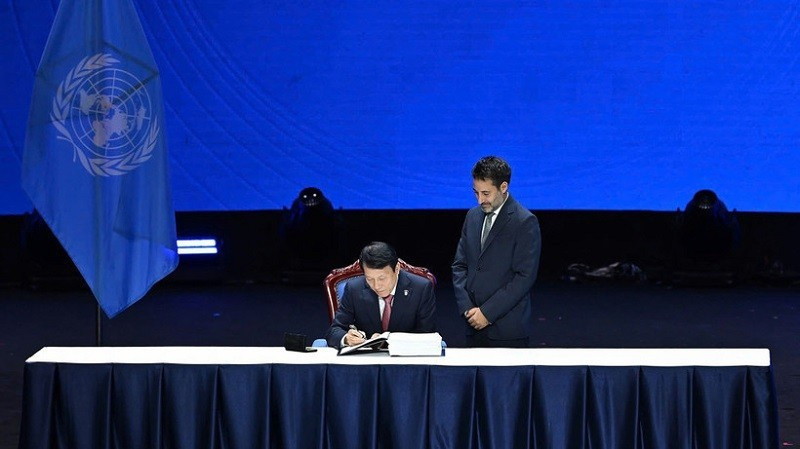
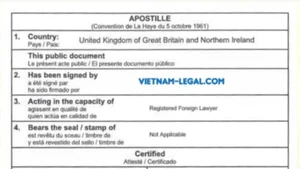



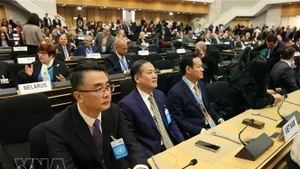

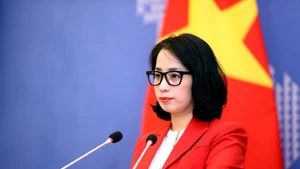


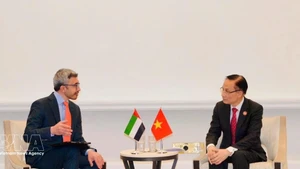



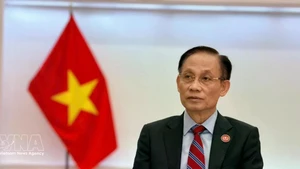
![[In pictures] Party General Secretary To Lam meets US President Donald Trump](https://en-cdn.nhandan.vn/images/dcd63867a0eed4c7753eb4bfb346593abc1ce710dfab8ad1b9aebd75ea6bf930b2ea13e4664779d689ba40aadd80f76d5d05d1208720fd7b0d811ace3a3297321c78cf738400e136e3f2d8790b24d43646e46edbe19517144a88f6ffb0d528f153574a7109328cc0949e4a4c16433c2ff751541639eefe4490518227264cbf8e/vna-potal-tong-bi-thu-to-lam-gap-tong-thong-hoa-ky-donald-trump-8599945.jpg.webp)